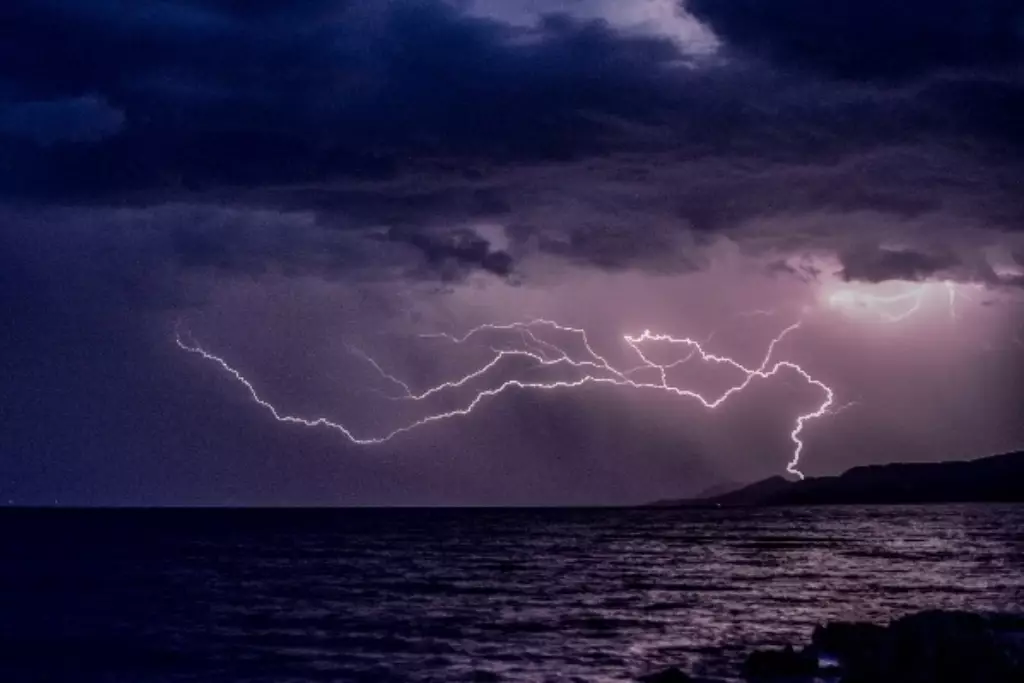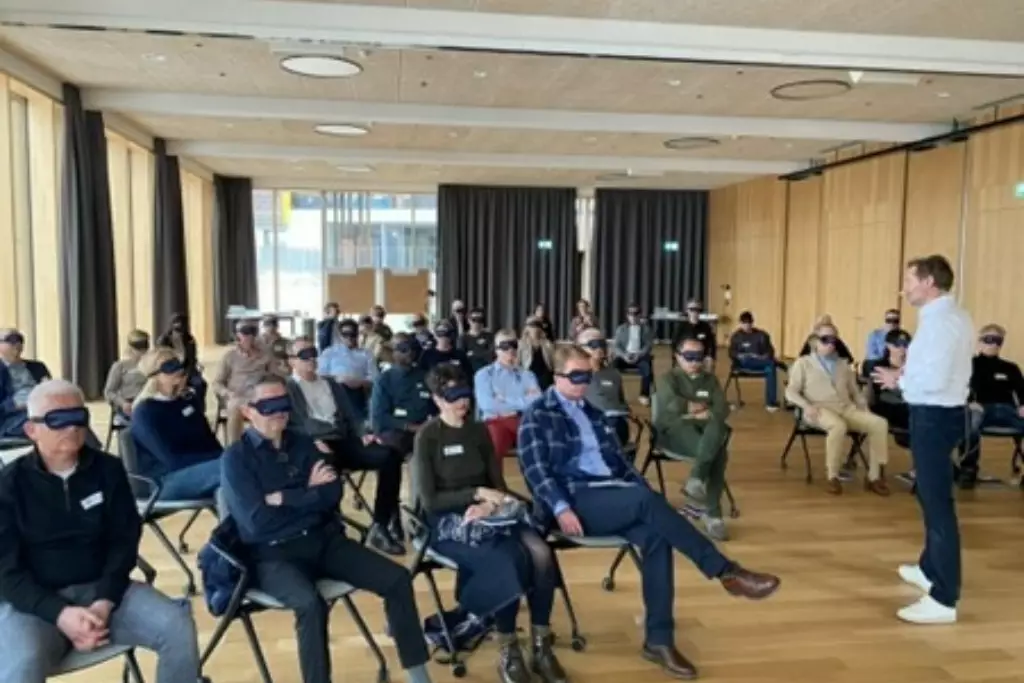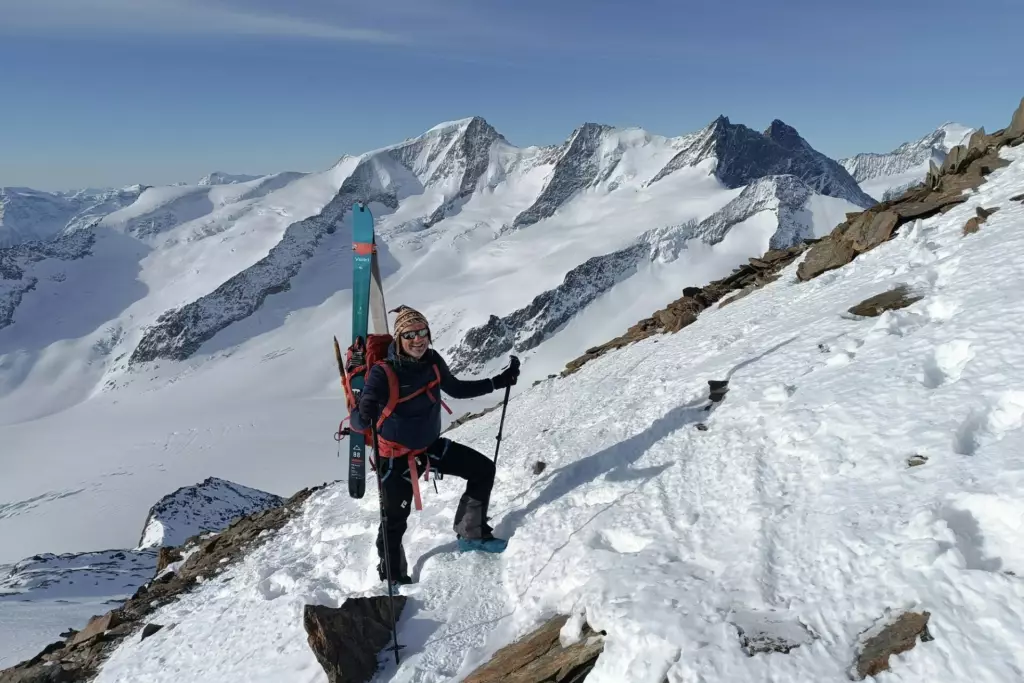Get in touch
Have you ever been struck by lightning?

- Duration
- 10 min read
- Author
- By Ekki
On February 21 at 5.15pm Brazil time, our sailing yacht, an X4.3 from the Danish shipyard X-Yachts, got struck by lightning.
We were six people on board, and we got hit during a severe tropical storm in the bay of Paraty, Rio de Janeiro province. Luckily nobody got hurt; however, the boat’s engine, electronics, instruments and radio died in the moment.
Since it was quite a unique and spectacular experience I felt like sharing some of the insights it triggered.
Don’t expect ‘enlightened' wisdom, still I hope you find some value in the lessons learned.
Nature humbles us
It started like a day in paradise on the southern shores of Ilha Grande. We sailed into Praia Aventureiro, a magical place with crystal waters, long white beaches, and a landmark coconut-tree with a 90 degree angle in its trunk. We then had 20 nautical miles of beautiful sailing with 3 to 4 beaufort trade-winds. Our place for the night would be Paraty, an old trading village founded in the 16th century and still beautifully preserved (UNESCO heritage site). We planned to fill our water tanks and stock up for the remainder of our sailing week.
As we approached the long Paraty bay the sky got darker, and south-westerly winds were picking up. We could see many boats, sail boats, power boats, tourist boats rushing for shelter into the marinas of the bay. Heavy rain set in, the wind reached 35knots (a solid 7/8 beaufort); when we were about half a mile from the marina, visibility went down to less than 20 meters. A first attempt to drop the anchor failed, so we decided to weather the storm by using the engine to keep us in the wind and stay more less at the same spot. There had been lightnings around us during this tropical storm, drawing quite impressive pictures into the darkening skies. But our lightning felt different.
When it hit us, there was light along the mast, at the same time an explosion-like sound. As a boy I used to count the seconds between a lightning and the sound to figure out how far away it struck, and to explore the difference between the speed of light and the speed of sound. This time, there was no such time delay: bright light and heavy explosion struck in the same instant, followed by another instant of complete silence. I immediately noticed that the engine was off, even though the instrument still showed 1'800 rpm. All the other instruments (wind, heading, depth, etc) had gone dark. And then, we noticed the storm again.
To take control of the boat we let some of the jib out which allowed us a bit of manoeuvring. And we dropped anchor again; since the engine was dead, we had to release the anchor manually. This time it held well, on about 5 meters depth in muddy ground.
Nobody was hurt, but all in shock. Humbled by the experience and grateful to be alive.
Later we learned that a lightning comes with 10 to 30 million volts; on the boat we typically make decisions between 12 and 220 volts. According to the WHO about 24'000 people die of lightning per year.
Never get too comfortable
It had been a wonderful sailing experience. A dear friend, one of the two boat owners, had invited us to join him, his wife and another couple to sail from Rio de Janeiro to the bay of Angra dos Reis. Our friend’s co-owner of the boat had raced the regatta from Buenos Aires to Rio de Janeiro the week before. They made the 1'300 nautical miles upwind race in 9 days and arrived second of the pack of competing sailing yachts. There were celebrations, cleaning, stocking up at the Iate Clube de Rio de Janeiro. Sailing out of the Rio bay and around the Pao de Azucar was an experience to remember, one that I had long been dreaming of. The following days brought fair winds, good moorings, quite some caipirinhas and good friendship and connection.
An experienced skipper once told me ’never get too comfortable’, and I got reminded of this advice. It was a happy sailing day. Overnight was calm and peaceful, anchoring reliable and firm, the boat and the sailing went nice and smooth. We enjoyed the day, life and ourselves, had some drinks on deck, and engaged in light conversations with our friends on board. All this pleasure turned into chaos within a few minutes. The whole storm in the Paraty bay only lasted about half an hour, but it came with brutal force. In neighbouring São Sebastião, a similar storm brought 600 millimetres of rain, the highest ever recorded in Brazil (you might have read of the land slides in São Paulo state).
There is another quote of my sailor friend: ‘it needs to look beautiful’; keep your boat tidy, so you can react and operate effectively when you need to and don’t have to look for tools, ropes, equipment, the hook, life wests or fire extinguisher.
I am not suggesting that we should become overly anxious and continuously run through worst case scenarios. We absolutely should enjoy nature at the fullest, but never loose respect and consideration that things can turn very quickly with brutal force. This is true at sea as it is in the mountains.
Be in the moment
The lightning got our full attention. Nobody was on the phone or not thinking of the lightning. And the next minutes were completely focused on our safety measures.
(Un)fortunately we don’t have pictures of the strike. We were all in the moment, and nobody even thought of taking pictures. I am sure it would have been amazing to capture the light in the mast, and the sound. But nature forced us to be in the moment, fully present and concentrated. And interestingly enough nobody had the impulse for picture taking.
We don’t have the picture; but we did have the experience. Even though I have read a few stories about boats in terrible storms I haven’t met anybody before who had been struck by a lightning. And for all six of us it was a first.
Act with focus and determination
As I reflect on what happened and chew on the afterthoughts while seated in a comfortable hotel, it hit me that what I appreciate about nature experiences, being at sea or in the mountains, is the clear playing field with a limited number of options to do to keep the boat safe (or deal with a storm in the mountains for that matter).
As the lightning struck and the engine and electronics went off, we had to assure manoeuvrability of the boat, hence we set a small jib. Then, we needed to find some kind of shelter and stability, hence dropping the anchor. Next, we took care of the crew members and found other boats to take them to shore. And eventually, we needed to bring the boat to a place where it is safely moored and can get repaired. There were clear challenges and clear responses. We were lucky that the responses worked out and everybody, both crew and boat ended in safe spots. And to just play around with the idea, there might have been additional risks for which we would have needed to find the adequate response: if for example the anchor would have been dragging or if the place didn’t have the right depth for anchoring, we would have needed to sail to a better suited place using the small jib. The avionics app on our mobile phones could have guided us since the instruments on the boat didn’t work anymore.
What I am most grateful for is that nobody got hurt on the boat; there was no medic onboard and what I have read about lightning injuries looked well beyond our level of expertise. The thought that somebody could have been touching the mast or the shrouds or backstays when the lightning hit is a nightmare thought.
I sense that social groups, be it a group of friends vacationing together or professional teams, often suffer the pain of optionality. There are so many things to do potentially, people are opinionated and get attached to their own idea, and quite often unpleasant dynamics arise to push the group to some decision making. You most probably will all have experienced those conversations, you might have pushed for your plan, or grudgingly went along with somebody’s plan. And it left some of the team with an after taste.
The optionality at sea and in the mountains is limited, and is gets even more narrow in a moment of crisis. Focus and determination are required; egos and moods will not solve the challenge.
There is help out there
After the storm had passed, it quickly got dark. Our sailboat was disabled and we needed help to offboard the crew and to bring the boat into a safe harbour.
As the day light faded we waved to passing boats and we could get the attention of a small motor board with a group of workers coming home. They approached; in limited Portuguese we explained our situation and they took two of our crew with them to shore. They would later send a water taxi for other crew members.
We tried to reach the marinas in the bay asking for help with the boat. The VHF of the yacht was dead, so we used our phones. The nautical guide book we had onboard was a bit outdated and most numbers didn’t exist anymore. Eventually, we reached Marina Farol and they promised to send help. In the following hour we repeatedly called them, and they either asked for patience or didn’t pick up the phone. And, around 19 o’clock, Michael of the marina service team with two colleagues and two dinghies did show up. We lifted the anchor, again by hand (it was holding very well in the mud, and the mud made a mess on the bow as we lifted the anchor; yet a very minor issue given the circumstances), and then Michael orchestrated the towing with the two dinghies pushing and pulling the boat the half mile into the marina. There, they turned the boat, we fixed a bow line on a buoy, and pushed and pulled backwards to fix two stern lines on the pier. At 7.45pm, the boat was safely moored in Farol marina. This was quite a remarkable manoeuvre: night had fallen at 6.30pm, we used some flashlights and short and clear messages to the two towing boats.
As you can see in the picture below not all yachts were so lucky on that evening.
We decided to spend the night in a hotel and shared our experience over dinner in a check in round. The dominant sense of the crew was one of humbleness and gratefulness.
The priority next morning was to find an electrician to check the boat. I contacted an Uruguayan sailor friend who then put me in touch with a Brazilian skipper who had done some deliveries for him. Gustavo, the Brazilian skipper, called me within 10’ and gave me two names of qualified electricians in the area. We met Renato at 10am at the boat, Pedro joined at 3pm, and they made thorough assessment of the damage and the situation. Later that day, the co-owner of of the boat arrived, he and my friend reassessed the options. Once again there was help available. 20nm further north is a bigger marina with shipyards and workshops and the owners knew the marina manager. We also met another sailor, Martin, who offered to tow the boat with his service boat to the other marina for repairs.
We had loads of help and support during these days; people were friendly and went the extra mile to help. We are grateful for their help, quick response and guidance.
It also confirmed the learnings of a study I read recently: when asked for help directly and explicitly more than 80% of people will respond favourably; helping others is part of human nature.
Don't get full of yourself
Our experience reminded me of Max Frisch’s book Homo Faber (latin for ‘man the maker’). It is the story about a civil engineer rationalizing everything and supposedly being in charge of his life and his work, until a sequence of completely unexpected events happen to him and turn his life upside down.
We all so often like to explain the world, be in charge and achieve. And at times might even compete with others wanting to be right and be seen... And then we get struck by lightning.
Of course, once in the hotel, the rationalising mind explores the voltage, the chances, the number of cases and deaths. We analysed the role of carbon in the mast as compared to aluminium and we argued about the electronics in the engine that manage the fuel intake and got killed by the lightning compared to a traditional electro-mechanical diesel engine.
On a more spiritual level, I wonder why it hit us and what we can learn about this experience. Was it ZEUS to quiet our minds and put some order in our lives? Was it a signal not to take ourselves too seriously and to treat nature with respect?
And a reminder that as humans we are all connected and here to support each other?
Sending you a light,
Namaste
Ekki
Latest Field Notes
More field notes that may interest you.

Go home - going home

Your Leadership Space – Obstacle or Enabler?
